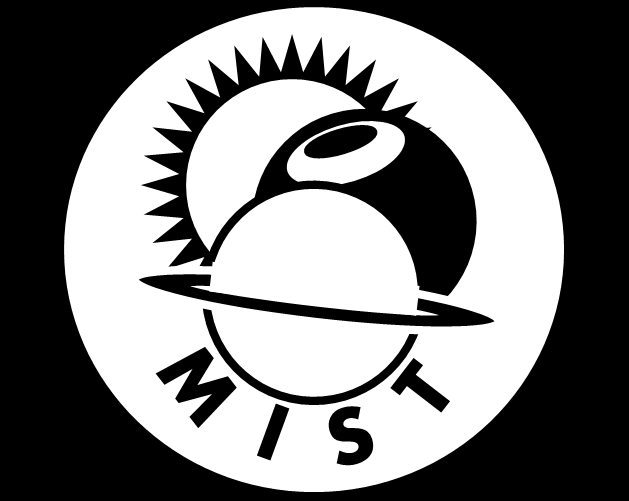MIST
Magnetosphere, Ionosphere and Solar-Terrestrial
"Mental Health and Wellbeing in the MIST Community": A series of panel discussions
Seminar: Python tutorial for space physics
The Planetary Science Group at Leicester are hosting a virtual seminar on 27 January 2021 at 14:00. The speaker is Dr Angeline Burrell from the US Naval Research Laboratory and her talk is titled: "Python tutorial for space physics". The seminar will be held on Microsoft Teams (click here to join), and the abstract is below.
Python is a free and open source programming language that is very useful for scientific data analysis. Many members of the space physics community have developed packages and tools to perform specialised functions commonly used within the community. In this presentation, I will provide several examples showing how Python can be used to display data, perform common data analysis operations, and perform space physics specific analysis. I will also go over some basics of responsible programming practices, which are applicable across all languages, and provide resources for learning more about Python, Python in space physics, and good programming practices in general.
Congratulations to the 2021 RAS Award winners
MIST Council would like to extend their congratulations to the 2021 Royal Astronomical Society Award winners.
In particular, we congratulate the following members of the MIST and wider space physics community that have been recognised for their outstanding achievements and contributions:
Winton Award: Dr Julia E. Stawarz, Imperial College London
Chapman Medal: Professor Ineke de Moortel, University of St Andrews
Annie Maunder Medal: Professor Robert Walsh, University of Central Lancashire
Fowler Award: Dr Richard Morton, University of Northumbria
James Dungey Lecture: Dr Karen Aplin, University of Bristol
Further details on all the RAS 2021 award winners can be found on the RAS website.
2021 Astronomy Grants
The closing date for the 2021 Astronomy Grants Round is 4th March 2021. Submissions are accepted from now. The Astronomy Guidelines for Applicants have been revised and can be found via the links below (the PDF with the full guidance is available under the ‘who can apply’ section on both pages):
Applicants should ensure they have read the guidelines in detail and contact the office with any queries ahead of submission.
Key points or revisions from the 2020 guidelines have been briefly summarised below for information:
- Page Limits – The page limit per project has been simplified and is no longer based on a requested FTE calculation.
- Applicant/Project FTE – There has been a change to the upper limit for requested applicant FTE (25%, not including PI management time). The guidance for total FTE requests per project has also been updated and must be strictly adhered to.
- Outreach Projects – Clarification on the page limit for outreach projects/outreach funding.
- Pathways to Impact – UKRI removed the requirement to submit a pathways to impact plan in March 2020; however applicants should still consider impact as part of their case for support (see guidelines for further information).
- Publications Table – Updates to the information required in the publications table.
New groups submitting their first consolidated grant proposal or those considering a consortium proposal are advised to inform the office ahead of submitting to the closing date. If you have any queries please contact This email address is being protected from spambots. You need JavaScript enabled to view it. or This email address is being protected from spambots. You need JavaScript enabled to view it..
2020 Space Census
MIST members are invited to submit to the 2020 Space Census!
The 2020 Space Census is the first national survey of the UK space workforce. It is a 5-10 minute anonymous online demographic survey of individuals for anyone working in the UK space sector in any capacity. The results will be used to improve what it’s like to work in the sector, to tackle discrimination, and to make the sector more attractive to new recruits.
The UK Space Agency’s press release about the Census can be found here.
